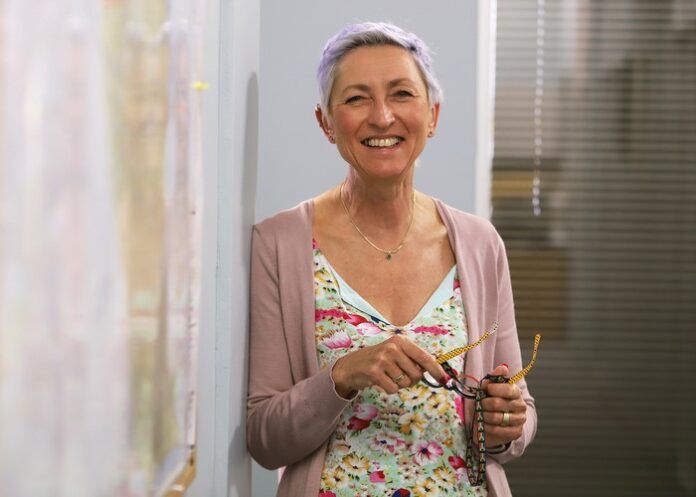In a fitting acknowledgement last week at the International Aids Conference in Munich, Germany, Cape Town’s Professor Linda-Gail Bekker received a standing ovation when she presented the results of the HIV prevention Purpose 1 drug trial for lenacapavir.
Bekker, chief executive at the Desmond Tutu Health Foundation, said that when she had first heard the trial results, it had been an extraordinarily emotional moment.
“I burst into tears,” she told The Guardian. “I’m 62, I’ve lived through this epidemic … I had family who died of HIV, as did many, many Africans – many people around the world,” she said.
The problem of how to prevent HIV infection, particularly in teenage girls and young women, had seemed “intractable”, Bekker added. But lenacapavir had offered thousands of women aged 16 to 25 in South Africa and Uganda 100% protection.
The drug could give young women greater agency over their lives and sexuality, she hopes, and potentially eliminate mother-to-child transmission of the virus.
“Even now, when I look at that (results) graph, I get shivers,” Bekker said.
There has been huge scientific progress since Aids first emerged in 1981 as a terrifying mystery disease that was then a death sentence. It took until 1983 before scientists identified that the HIV virus was behind it, and another two years before the first test was developed to detect it.
And while antiretroviral drugs now mean people with HIV can have healthy lives, and that Pre-exposure prophylaxis (PrEP) drugs can protect against infection, they don’t reach everyone who needs them.
Most new infections now occur outside sub-Saharan Africa, with HIV incidence among teenagers and young women being “extraordinarily high” in parts of the region, where more than 150 000 were infected last year.
In a comparison part of Bekker’s trial, women were asked to take daily pills as PrEP against HIV. They continued to become infected – because, Bekker explains, many of them did not in fact take the pills daily.
It illustrates why the results for a drug that only needs to be injected twice a year have generated such excitement. Leaders in the field of HIV prevention describe the drug as a “miracle” with the potential to be a “gamechanger”.
“We know that adherence to anything is more challenging for younger people – and that’s because they’re busy, their lives are full, they have things to do, places to be,” Bekker said.
Bekker hopes lenacapavir will give girls and young women who are at risk of HIV infection greater control over their own lives.
In a policy that remains relatively rare for drug trials, becoming pregnant did not exclude women, and 193 became pregnant while on lenacapavir. There are so far no signs of drug-related problems.
Bekker and her team will follow the mothers and babies for longer to confirm that the drug can prevent mother-to-child transmission during pregnancy and childbirth, and while breastfeeding. A tenth of new HIV infections come via this route.
Offering women with a newborn child an injection as she leaves hospital is likely to have far greater impact than expecting her to remember a daily pill, Bekker said, and raises the “exciting” prospect of eliminating mother-to-child transmission.
Questions remain, however, with major concerns about how quickly and cheaply the drug will reach the market. The pharmaceutical company behind the drug, Gilead, is waiting for the results of further trials in other groups before seeking regulatory approval.
Jared Baeten, vice-president for clinical development at Gilead Science, has promised the company would work with manufacturers to ensure generic versions received regulatory approval.
But he would not confirm that middle-income countries such as Brazil would have the opportunity to get cheaper, generic forms of the drug. Gilead has also resisted calls to work with the UN-backed Medicines Patent Pool to widen access.
Trial participants will continue getting lenacapavir, and those in the comparison part of the study using pills also have the chance to switch to the injectable.
Bekker said she would “hold Gilead to account” if the company did not follow through on pledges to allow global access, but added that she had no reason to doubt their commitment.
“I’m not the clinical drug triallist who does the trial and walks away,” she said. “The impact will not be felt – it doesn’t matter how good the efficacy is – if we don’t have access.”
See more from MedicalBrief archives:
Lenacapavir demonstrates efficacy in people with highly resistant HIV
Twice-yearly anti-HIV jab shows total protection – African study

